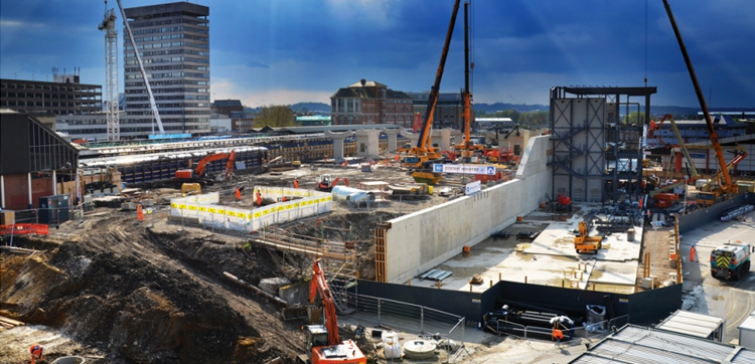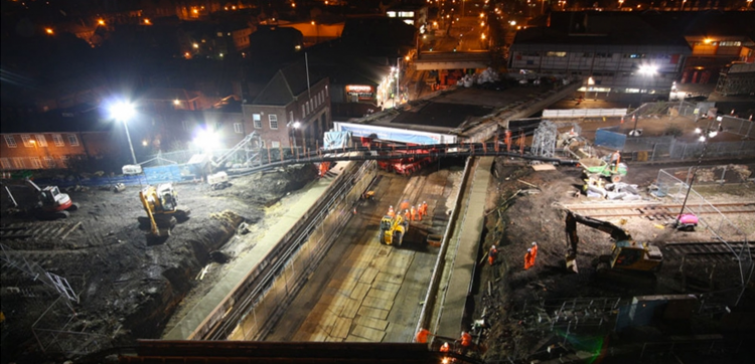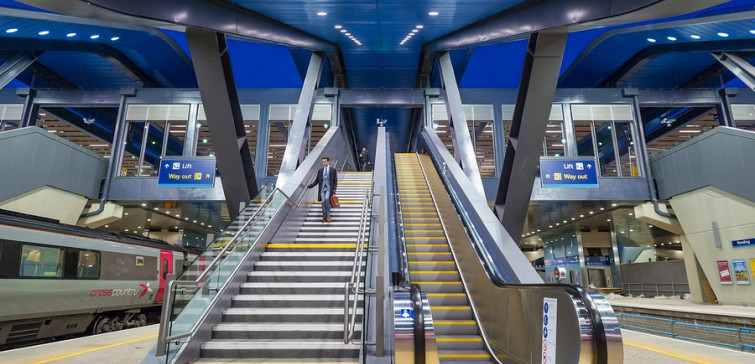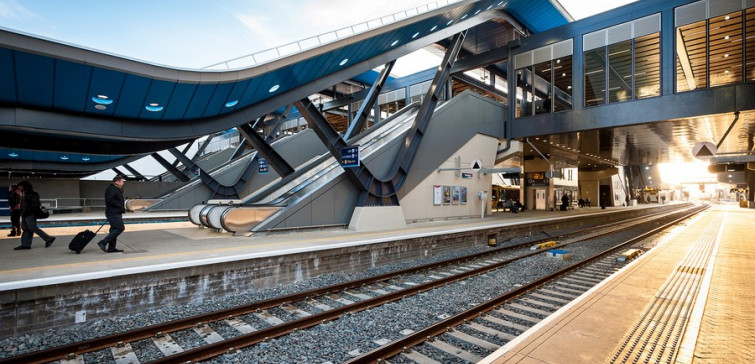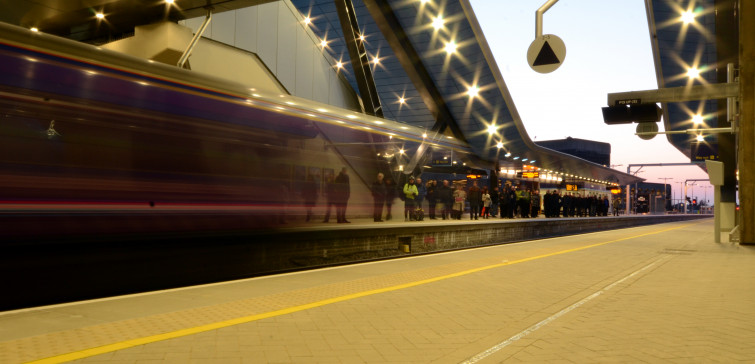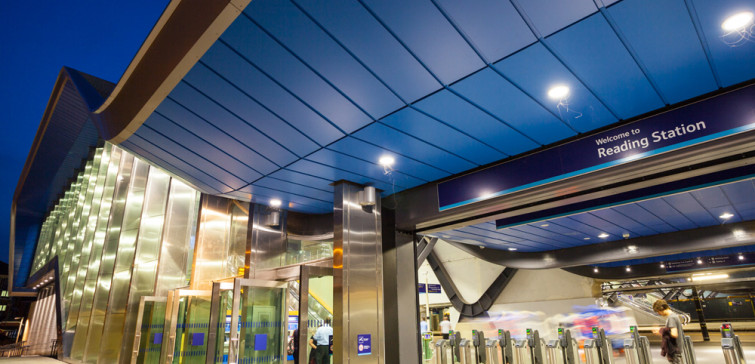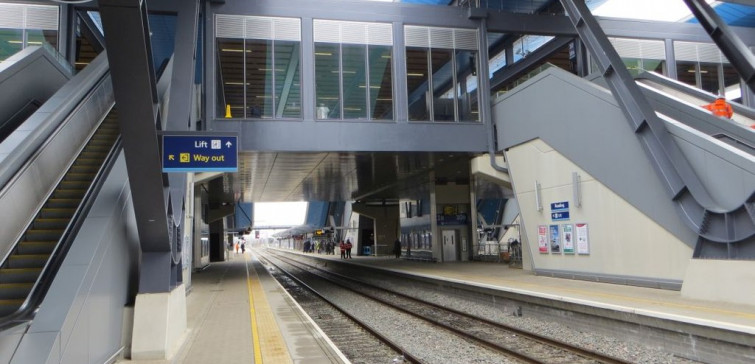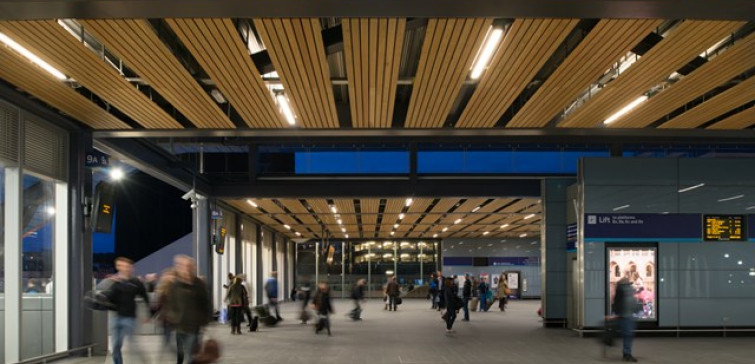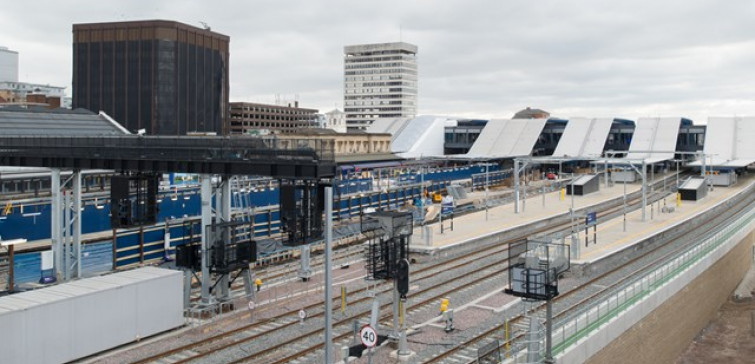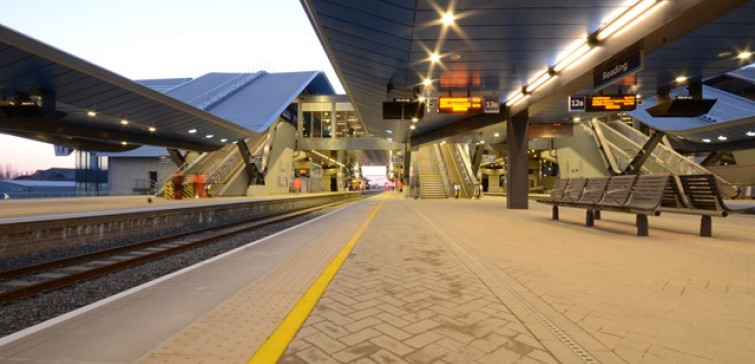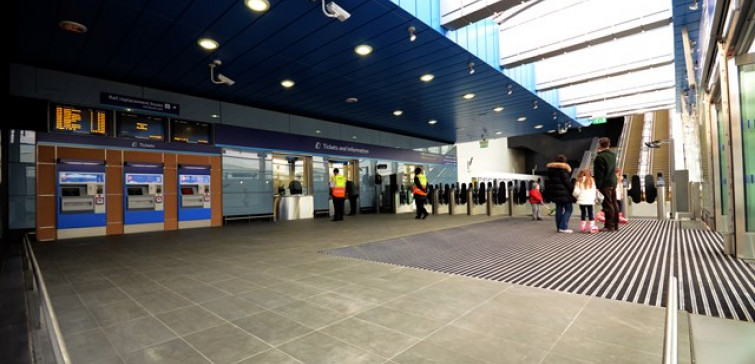Reading Station Area Redevelopment
Reading is one of Britain’s busiest stations, handling 14 million passengers every year. Some 730 trains every day serve Reading station, taking passengers to destinations across the country.
The complicated track on the Great Western Mainline and limited platform space formed a bottleneck. This caused delays which meant that trains had to wait outside the station for a platform.
Delays at Reading also had knock-on effects along the length of the Great Western Main Line which links London with the South West of England and Wales.
Reading Station Area Redevelopment
The constituent parts of the project were:
- a new Thames Valley signalling centre
- four new platforms on the north side of the station
- a new south side platform and platform extensions for Waterloo line services
- grade separation of the track on the east side of the station
- new train maintenance facility to the west of the station replacing the existing facility
- a new transfer deck and escalators to platforms
- grade separation by provision of elevated mainline to the west of the station facilitating improvements to Cow Lane Bridge
- grade separation of the western chord from Oxford Road Junction to Westbury Line junction
- extensive track layout reconfiguration
- passive provision for a possible future extension of Crossrail services and introduction of AirTrack services to London’s Heathrow Airport.
Reading Station Area Redevelopment
The outputs of the project were:
- a minimum of four additional train paths per hour in each direction
- five additional platforms
- 125% improvement on through line platform capacity
- 38% improvement in service performance.
Reading Station Area Redevelopment
Client: UK Department for Transport
Location: Reading, Berkshire, UK
Start date: 2011
End date: 2015
Duration: 72 months
Contract value: £850m
Services provided: Programme management, station development including architectural conceptual planning, station planning


